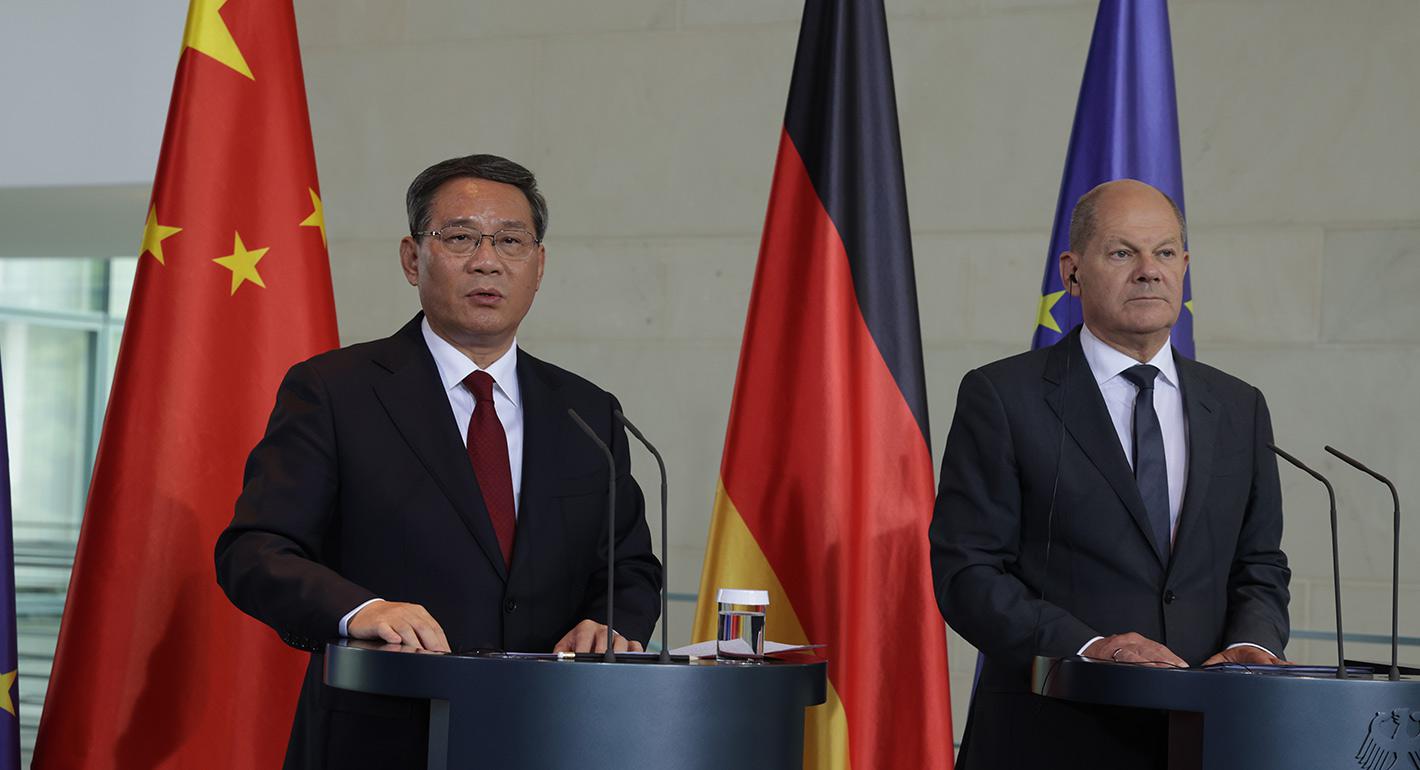The Carnegie Asia Program studies disruptive security, governance, and technological risks that threaten peace and growth in the Asia Pacific region.

Beijing is leading the way in AI regulation, releasing groundbreaking new strategies to govern algorithms, chatbots, and more. Global partners need a better understanding of what, exactly, this regulation entails, what it says about China’s AI priorities, and what lessons other AI regulators can learn.

Washington can’t decouple from China without Europe’s help, while China hopes to soften Europe’s stance and has focused its diplomacy there. This has put Brussels in a pivotal position.

China’s Belt and Road Initiative has followed a unique, locally focused strategy in Türkiye to adapt to the Turkish economic and political environment.
With relations at an all-time low, punitive actions targeting China have become politically popular, even if they have no analytical basis.

China’s Belt and Road Initiative helped build an industrial complex in Indonesia—but contestations at the local and national levels compelled Chinese players to adapt to rapidly shifting Indonesian cross-currents.

Canberra is becoming a critical player in collectively deterring Chinese aggression through force posture cooperation
Asia is changing — but that cannot be understood only by following government negotiations and national trade and investment statistics. Asia Local/Global looks beyond national capitals for the local trends and perspectives now shaping the region’s future.
Evan A. Feigenbaum is vice president for studies at the Carnegie Endowment for International Peace, where he oversees research in Washington, Beijing, and New Delhi on a dynamic region encompassing both East Asia and South Asia.
Paul Haenle holds the Maurice R. Greenberg Director’s Chair at the Carnegie Endowment for International Peace and is a visiting senior research fellow at the East Asian Institute, National University of Singapore. He served as the White House China director on the National Security Council staffs of former presidents George W. Bush and Barack Obama.
Darshana M. Baruah is a fellow with the South Asia Program at the Carnegie Endowment for International Peace where she directs the Indian Ocean Initiative. Her primary research focuses on maritime security in the Indo-Pacific and the role of islands in shaping great power competition.
Godement, an expert on Chinese and East Asian strategic and international affairs, is a nonresident senior fellow in the Asia Program at the Carnegie Endowment for International Peace.
Robert Greene is a nonresident scholar at the Carnegie Endowment for International Peace’s Technology and International Affairs Program and Asia Program, focusing on Chinese financial sector trends and on topics at the nexus of cyberspace governance, global finance, and national security.
Charles Hooper is a nonresident scholar in the Asia Program.
Huang is a senior fellow in the Carnegie Asia Program, where his research focuses on China’s economy and its regional and global impact.
Isaac B. Kardon is a senior fellow for China studies in the Asia Program. He was formerly assistant professor at the U.S. Naval War College, China Maritime Studies Institute, where he researched China’s maritime affairs, and taught naval officers and national security professionals about PRC foreign and security policy.
Kenji E. Kushida is a senior fellow for Japan studies in Carnegie’s Asia Program, directing research on Japan, including a new Japan-Silicon Valley Innovation Initiative at Carnegie.
Sana Jaffrey is a nonresident scholar in the Asia Program at the Carnegie Endowment for International Peace and is concurrently the director of the Institute for Policy Analysis of Conflict (IPAC), Jakarta.
Chung Min Lee is a senior fellow in Carnegie’s Asia Program. He is an expert on Korean and Northeast Asian security, defense, intelligence, and crisis management.
Evan S. Medeiros is a nonresident senior fellow in the Asia Program at the Carnegie Endowment for International Peace.
Jennifer Brick Murtazashvili is a nonresident scholar in the Asia Program at the Carnegie Endowment for International Peace.
Trinh Nguyen is a nonresident scholar in the Asia Program at the Carnegie Endowment for International Peace.
Elina Noor is a senior fellow in the Asia Program at Carnegie where she focuses on developments in Southeast Asia, particularly the impact and implications of technology in reshaping power dynamics, governance, and nation-building in the region.
Paal previously served as vice chairman of JPMorgan Chase International and as unofficial U.S. representative to Taiwan as director of the American Institute in Taiwan.
Perkovich works primarily on nuclear strategy and nonproliferation issues; cyberconflict; and new approaches to international public-private management of strategic technologies.
Pettis, an expert on China’s economy, is professor of finance at Peking University’s Guanghua School of Management, where he specializes in Chinese financial markets.
Matt Sheehan is a fellow at the Carnegie Endowment for International Peace, where his research focuses on global technology issues, with a specialization in China’s artificial intelligence ecosystem.
Ashley J. Tellis is the Tata Chair for Strategic Affairs and a senior fellow at the Carnegie Endowment for International Peace, specializing in international security and U.S. foreign and defense policy with a special focus on Asia and the Indian subcontinent.
Ashley Townshend is a senior fellow for Indo-Pacific security, directing research on regional strategy, defense policy, and alliances and partnerships.
Milan Vaishnav is a senior fellow and director of the South Asia Program and the host of the Grand Tamasha podcast at the Carnegie Endowment for International Peace. His primary research focus is the political economy of India, and he examines issues such as corruption and governance, state capacity, distributive politics, and electoral behavior. He also conducts research on the Indian diaspora.